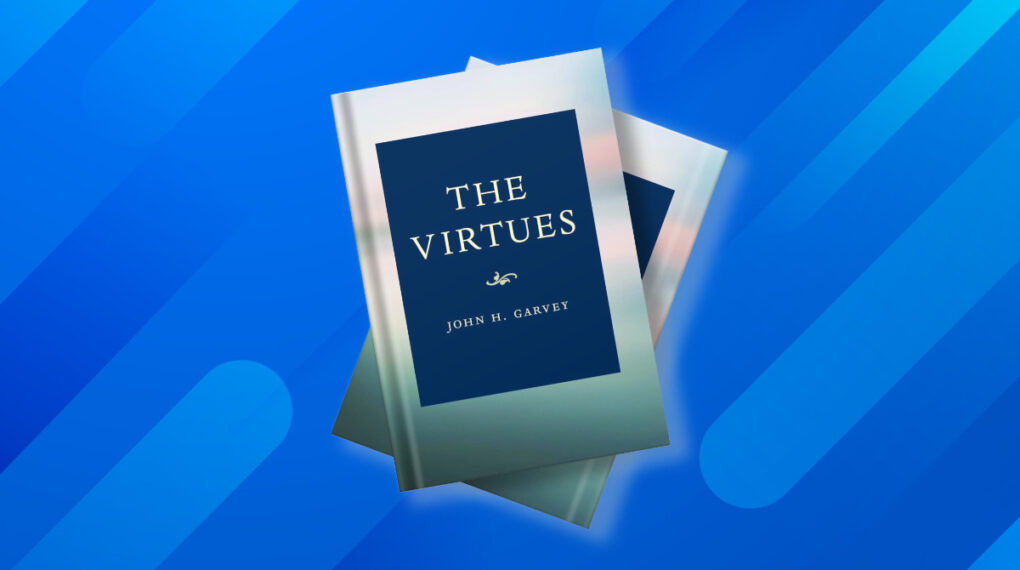The Virtues: A Catholic Guide
John Garvey
The Catholic University of America Press
2022
200 pages
ISBN 978-0813236223
Perhaps the reason that the virtuous life is treated with contempt by so many is that it’s just not that interesting. Meekness could hardly be more banal. Gratitude is passé. Humility: I don’t need it. This unfortunate caricature of the adventure that Christian life offers is not easily dispelled, and won’t be easily dispelled by Garvey’s The Virtues. The book is solid and well-annotated, but ultimately boils down to an unexciting highlight reel of what ought to be the most inspiring parts of the human soul.
The Virtues sets out to articulate what the good life looks like, and why that might be relevant to a student starting into their first year of university. It does this by examining the virtues one at a time. Nearly thirty virtues are considered in quick succession across the book’s scant runtime, coming to roughly one virtue every five pages, as divided neatly into three categories: the theological virtues, the cardinal virtues, and “the little virtues.” There are many virtues. In fact there are so many, and they come so quickly, that I frequently found myself pausing halfway through a chapter to check the topic being discussed. Brevity is not a virtue discussed but is evidently one employed.
Garvey’s philosophy, which is made clear in the introduction, is that virtues are conscious, habitual practices which are the basis of the moral life. He takes a systematic approach to his study of them, which works well. The references are various and original – on one page Pope Francis and on the next Mary Oliver, or Jane Austen, or Tom Wolfe.
The definition of each virtue is cunningly smuggled in using story and stanza, usually to good effect. Garvey occasionally reaches for the personal, choosing to include a poignant anecdote concerning his father’s sudden death and the courage his mother displayed in taking charge of the arrangements. Valour, he tells us, is not just for heroes and famous saints. It is for mothers too – and even students.
Although the form of the chapters is pleasing, their arrangement is peculiar. As mentioned above, they are broken into three categories, something which at a glance makes perfect sense but in practice has problems. Three categories are too many, and the result is a whirlwind. Each virtue could have its own book written about it – and Garvey could likely write that book – but such little time is given to each one that they lack depth and as a result lack clarity.
What is the difference, for instance, between “honesty” and “truthfulness”? One could imagine a distinction between the two, but Garvey doesn’t make it. They are twenty-five odd pages apart. Oftentimes, his best chapters are the ones in which he begins by telling the reader what a virtue isn’t. But in some cases he never reveals what it actually is. It seems he just doesn’t have time.
Some of the references are strange too. Snoop Dogg is quoted, which initially made me chuckle. The seventy-something-year-old former president of CUA knows Snoop Dogg! But as I continued reading, I became puzzled at the inclusion. The lyric was not profound, nor did it help make Garvey’s point any clearer than it otherwise would have been. So why was it there? At worst, it seemed a kind of misguided attempt at relatability. At best, it was there for the very reason it was at first amusing – its incongruity. But even assuming the latter, the humour was not at all clear on the page. This is one example of the significant problem of style and tone in the book.
It’s frustrating: everything is in place to make The Virtues great, and yet it fails to engage. The cadences and rhythms are boring: workman-like, well-crafted but deathly repetitive. The prose never sings and the tone rarely transcends the schoolteacher’s. There would be nothing wrong with this if it were only intended to be expository, but it isn’t. Garvey aims to convince, and the serious, legal tone doesn’t cut it. His writing is much like his public speaking: clear, informative, but not the kind of stuff which inspires revolution, and certainly not the moral revolution he is calling for.
Of course it is possible I am simply not the target audience here. This is a book for students who have just left the nest. For some, this may mean entering into contemporary culture for the first time – an encounter which strips many of the faith and formation they were raised with, which they assumed was solid, but was in fact untested. For the young Catholic embarking on their studies at the secular university, this may prove an invaluable anchor, the short chapters serving as guide rails to steady their path.
The question asked and answered in the early pages is whether a university has a duty to provide a moral formation. Garvey concludes that it does, and that a formation is being provided, but not one of substance or virtue. He echoes the words of the late American poet Mary Oliver: “Attention is the beginning of devotion.” If this short book, small enough to be slipped inside a coat or satchel, helps to nudge a student away from the pitfalls of university life and draw their attention toward the path of the saints, all the better. The advice within is thoughtful and prudent. But I worry that if we want our young people to choose the difficult and wonderful life of virtue, we’re going to need to be a lot more convincing.
About the Author: Luke Power
Luke Power is a writer and English language teacher living on the west coast of Ireland. He writes variously, including fiction, poetry and reviews.

